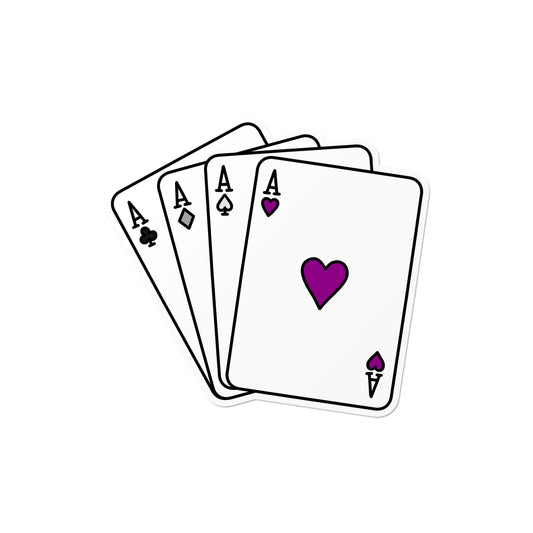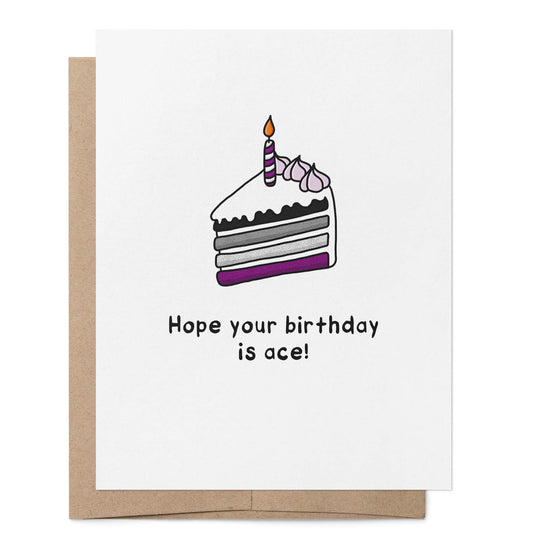Understanding Asexuality: A Crash Course for Asexual Awareness Week
Asexual Awareness Week. Maybe you've heard about it. Maybe you haven’t. Either way, it’s time to get the facts straight about what it is, why it matters, and how you can join the conversation.
Asexuality often gets sidelined in conversations about LGBTQ+ identities. But it deserves the spotlight. And that’s where Asexual Awareness Week comes in—to educate, empower, and celebrate. You ready?
What Is Asexual Awareness Week?
Asexual Awareness Week (or Ace Week) is an annual event that promotes awareness and understanding of asexuality. It’s designed to uplift the voices of ace individuals, highlight their experiences, and break down misconceptions.
Quick rundown:
- Takes place in the last full week of October.
- Aims to educate people about asexuality.
- Advocates for better recognition and inclusion of asexual identities in the LGBTQ+ community.
The week is about more than education. It’s about visibility. Ace Week fights the stereotype that asexuality isn’t real or isn’t “queer enough.” News flash—it is. And it’s time people took note.
The ABCs of Asexuality
Let’s start with the basics. What does it mean to be asexual? Asexuality refers to a lack of sexual attraction to others. But it’s not black and white.
Here’s a simple breakdown:
- Asexual: Experiences little or no sexual attraction.
- Gray-Asexual: Falls somewhere between asexuality and allosexuality (experiencing sexual attraction).
- Demisexual: Experiences sexual attraction only after forming an emotional bond.
There’s a spectrum here, and it’s different for everyone. Some asexual people may still want romantic relationships. Others don’t. It’s personal.
Common Misconceptions About Asexuality
There’s a lot of confusion about what asexuality is and isn’t. Let’s clear that up:
“Asexual people don’t want relationships.”
False. Asexuality is about sexual attraction, not emotional or romantic connection. Some asexual people want relationships, some don’t.
“Asexuality is the same as celibacy.”
Wrong. Celibacy is a choice. Asexuality is an identity.
“Asexual people can’t have sex.”
Also false. Some asexual people do have sex. It’s about attraction, not action.
It’s important to get these misconceptions out of the way. They limit understanding and push ace people further into invisibility.
Why Asexual Awareness Matters
The lack of understanding around asexuality is a problem. It leaves ace people feeling isolated and misunderstood. That's why Asexual Awareness Week is crucial. It provides a platform for ace voices and makes space for conversations that don’t happen often enough.
Asexuality and Mental Health
Many ace individuals struggle with mental health because of a lack of acceptance. Society pushes a narrative that sexual attraction is universal. For those who don’t experience it, this can lead to feelings of brokenness or inadequacy. That’s damaging.
Supporting asexual individuals means creating spaces where they don’t feel like they have to explain themselves constantly. It’s about normalizing the diversity of experiences.
How to Celebrate Asexual Awareness Week
So, what can you do to show your support?
Here’s a list of practical ways to get involved:
- Educate Yourself: Learn the facts about asexuality and ace-spectrum identities.
- Join the Conversation: Use your social platforms to share ace stories, statistics, and educational content.
- Support Ace Creators: Follow asexual creators, buy from ace-owned businesses, and amplify ace voices.
- Challenge Stereotypes: If someone misrepresents asexuality, correct them. Ignorance can only be fixed with facts.
- Attend Events: Check out virtual or in-person events that raise awareness and build community.
Got an ace friend? Show up for them. Ask them how they’d like to be supported. And remember—sometimes the best way to support is to listen.
FAQ: Asexual Awareness Week
Let’s hit some common questions people have about Ace Week and asexuality.
Q: When is Asexual Awareness Week?
A: It’s celebrated annually during the last full week of October. Mark your calendar.
Q: Who can participate in Asexual Awareness Week?
A: Anyone! Whether you’re part of the ace community or an ally, this week is about awareness and inclusivity.
Q: How is Asexual Awareness Week different from Asexual Visibility Day?
A: Asexual Visibility Day focuses on recognition of ace identities, while Asexual Awareness Week expands the conversation to include education, advocacy, and action.
Q: Where can I find ace-friendly events?
A: Many LGBTQ+ organizations host events during Ace Week. You can also check online communities and forums like AVEN (Asexual Visibility and Education Network).
Q: What are some resources for learning more about asexuality?
A: Start with AVEN’s website, check out the book “The Invisible Orientation” by Julie Sondra Decker, and follow ace advocates like Yasmin Benoit.
Your Role in Asexual Awareness Week
If you’re not ace, you might be wondering what this week has to do with you. Here’s the thing: representation and visibility benefit everyone.
Think about it—how many identities and experiences go unnoticed because they don’t fit neatly into the mainstream idea of what it means to be queer? Asexual Awareness Week gives everyone a chance to learn, reflect, and support.
Ask yourself: How can I make the world more inclusive for ace people?
Where to Get Ace Gear for Asexual Awareness Week
Looking for a way to show your pride or support? Check out our ace-themed greeting cards, stickers, pins, and accessories at That Queer Card Co. Whether you're ace or an ally, our products are designed to be bold, queer, and unapologetically YOU.
Shop with us today and make your voice (or your card) heard this Asexual Awareness Week.
Final Thoughts
Asexual Awareness Week is more than a celebration. It’s a call to action. It’s about education, inclusion, and standing up for asexual identities. Whether you're part of the ace community or a supportive ally, take this week to amplify ace voices and spread the message: Asexuality is real, valid, and deserves recognition.







